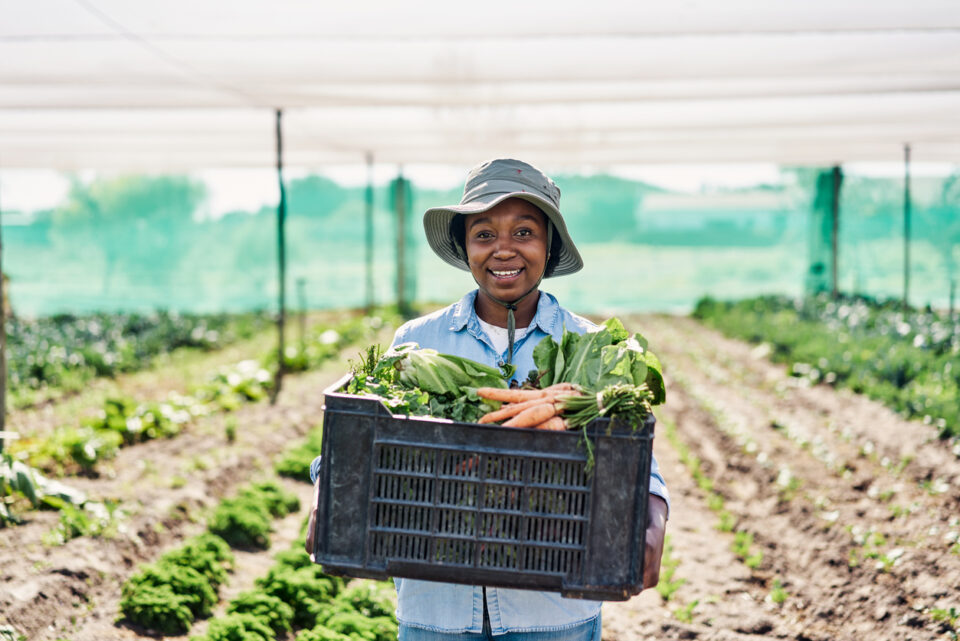Malala Yousafzai once remarked, “One book, one pen, one child, and one teacher can change the world.” In a similar vein of transformative potential, Nigeria, with its vast land resources and diverse agro-ecological zones, holds a critical position in the agricultural domain of Africa. The nation’s agriculture sector not only employs a significant portion of its populace but also contributes substantially to its GDP. Despite its immense potential, Nigeria grapples with issues such as low productivity, restricted market access, and the detrimental impacts of climate change, hindering its full agricultural capability.
The significance of unlocking Nigeria’s agricultural potential extends well beyond its borders, particularly concerning food security across Africa. As one of the continent’s most populous nations, constituting approximately 15.5% of its population in 2023, Nigeria’s success in achieving domestic food security directly influences the region’s food availability and affordability. Moreover, Nigeria’s agricultural advancements could serve as a benchmark for other African nations seeking to enhance their food production and security.
This study endeavors to identify strategies to unlock Nigeria’s agricultural potential as a means to bolster food security throughout Africa. By examining current agricultural practices, pinpointing opportunities for enhanced production, tackling existing challenges, and highlighting effective interventions, the aim is to provide insights into how Nigeria can boost its food production capacities. The study also proposes recommendations for sustainable agricultural practices and regional collaboration to ensure enduring food security for Nigeria and the continent at large.
Nigeria’s agricultural landscape is rich and varied, with key crops such as cassava, yams, maize, rice, and sorghum forming the staple diet, alongside economically vital cash crops like cocoa, oil palm, and rubber.
Farming techniques across Nigeria vary by region and crop, with traditional methods still prevalent in many areas, characterized by manual labor and simple tools. However, there is an increasing shift towards mechanization and contemporary agricultural practices, particularly for cash crops and large-scale farming operations.
Despite its vast agricultural promise, Nigeria’s productivity lags behind nations with similar agro-ecological settings, such as Brazil and Indonesia. Factors contributing to this include limited access to essential inputs like improved seeds, fertilizers, pesticides, and inadequate irrigation infrastructure, all of which are crucial for productivity enhancement.
Compounding these productivity challenges are issues like land degradation, deforestation, and climate change. Poor market access and post-harvest losses further exacerbate the country’s low productivity levels.
Nigeria possesses significant untapped potential to amplify food production and enhance food security for its population and the broader African continent. Key strategies include expanding agricultural land use responsibly and improving irrigation systems to counteract the unpredictability of rain-fed agriculture, exacerbated by climate change.
Sustainable land expansion and enhanced irrigation practices must be mindful of environmental conservation, land tenure issues, and community needs. Furthermore, the adoption of modern farming technologies, improved seeds, and efficient pest control methods are essential for increasing food yields and reducing post-harvest losses.
Governance that promotes transparency and accountability in natural resource management is crucial for supporting agricultural development.
Case studies such as the Growth Enhancement Support (GES) scheme, which improved access to agricultural inputs through electronic vouchers, and the sustainable practices of the Songhai Center in Benin, exemplify successful agricultural interventions and sustainable farming methods that can be replicated and adapted in Nigeria.
Improvements in infrastructure, logistics, market access, and a focus on research and innovation are vital for enhancing Nigeria’s agricultural productivity and sustainability. Regional and international cooperation also plays a key role in supporting Nigeria’s agricultural sector and food security objectives.
Ultimately, boosting food production in Nigeria promises significant socio-economic benefits, including job creation, poverty alleviation, and economic growth, while emphasizing the need for environmental sustainability in agricultural practices.
Deforestation poses a significant environmental threat in Nigeria, resulting in biodiversity loss, soil erosion, and diminished water resources. To combat this, promoting sustainable land management practices and reforestation initiatives is crucial. Soil erosion, particularly prevalent in heavily farmed areas, can be mitigated through methods like contour plowing, terracing, and cover cropping, which enhance soil health.
Water pollution, primarily from agricultural runoff containing harmful chemicals, is another pressing issue. Implementing water management strategies such as reducing chemical inputs and advocating for organic farming practices can alleviate this pollution and safeguard water sources.
Ensuring the sustainability of Nigeria’s agricultural sector entails several key steps. Firstly, supporting sustainable land management practices like conservation agriculture and agroforestry is vital for preserving soil fertility. Secondly, enhancing water management techniques can optimize water usage and minimize pollution. Thirdly, promoting renewable energy sources such as solar power can reduce reliance on fossil fuels and mitigate climate change effects.
Balancing food security with environmental conservation requires strategic planning. Sustainable intensification of agriculture, achieved through improved crop varieties and eco-friendly farming methods, can boost food production while minimizing ecological harm. Encouraging consumption of locally sourced, seasonal foods can also reduce carbon emissions associated with food distribution.
Additionally, policies should prioritize smallholder farmers and facilitate their participation in sustainable agricultural practices. Investing in research, strengthening governance, and fostering regional cooperation are also essential for sustainable agricultural development.
In conclusion, Nigeria’s agricultural sector holds immense potential to bolster food security in Africa, provided challenges are addressed comprehensively. Recommendations include promoting sustainable land and water management, adopting renewable energy, and advocating for sustainable consumption patterns. Embracing these measures can enhance food production, elevate livelihoods, and promote sustainability not only in Nigeria but across Africa. To echo Jomo Kenyatta, we must shape the future as architects for the benefit of generations to come.


